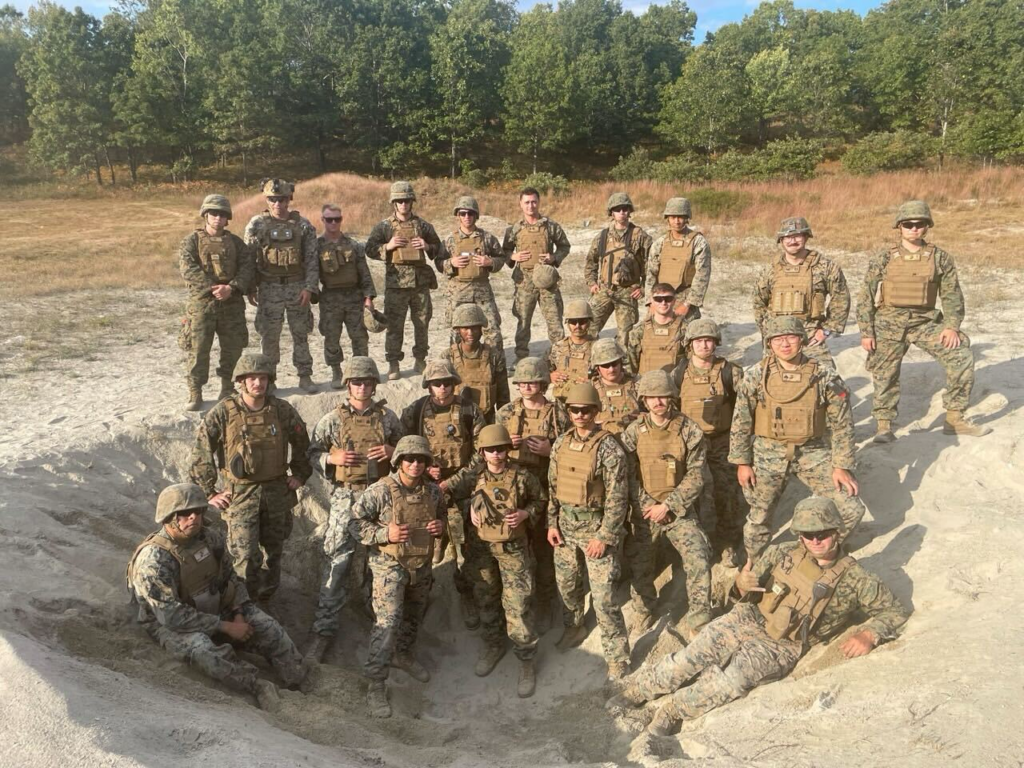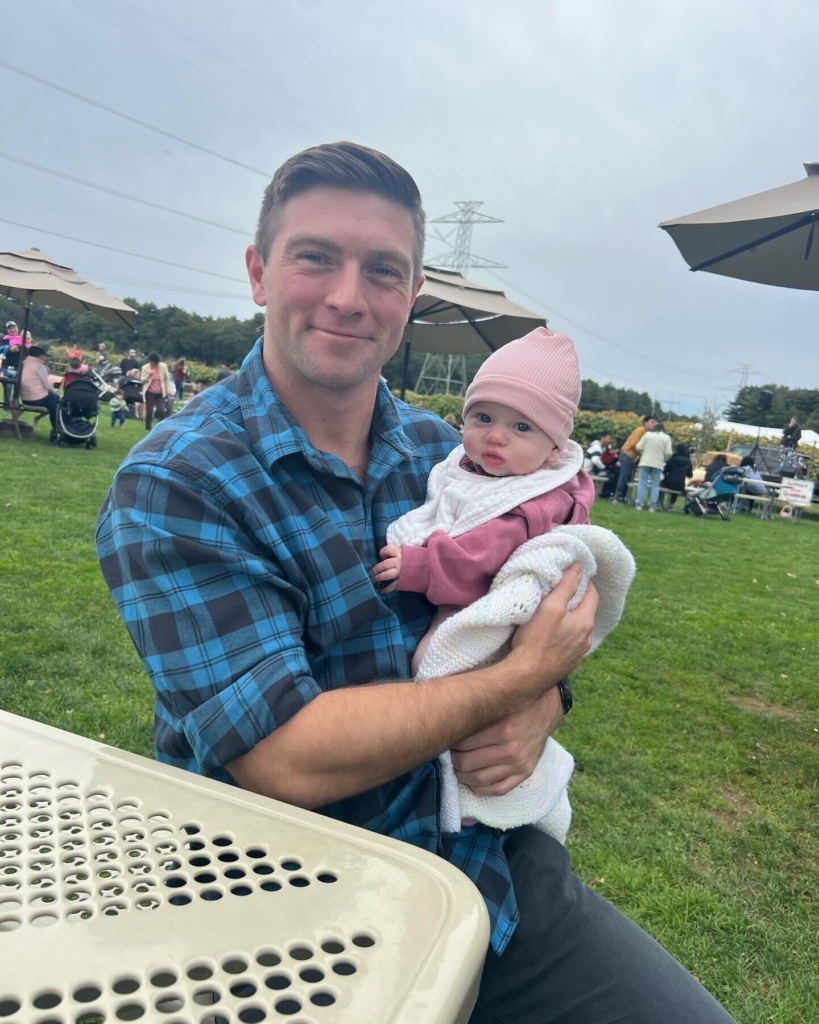Being Bonterra: Eric Hamm’s mission-driven leadership

New Bedford, Massachusetts, is close to where Eric Hamm grew up. The town hosts an annual event where they read Moby Dick cover to cover from a podium. It’s not surprising then that a quote from that book made an impression on Eric early on – “Be cool at the equator; keep thy blood fluid at the Pole. Like the great dome of St. Peter’s, and like the great whale, retain, O man! in all seasons a temperature of thine own.”
In other words, says Eric, there is virtue in maintaining an “internal spaciousness that allows one to keep a core, solid, internal temperature, no matter what externalities might be acting upon it.” The sentiment has helped him forge resilience in the face of adversity and maintain a cool head when needed – as senior manager of business development at Bonterra, as a civilian, and as a Marine.
Finding purpose

Eric is halfway through a six-year contract serving as a corporal in the Marine Corps Reserves, a role he took on in part to carry on his family’s legacy of service. His grandfather Elwin Hamm was awarded the Purple Heart after being wounded in Normandy during WWII; his cousin Brendan served in the Marine Corps and uncle John served in the Army – men he looked up to. However, unlike most people who join the military at age 18, Eric was 28 years old and well into his career at Bonterra when he decided the time was right to enlist.
After graduating from the University of Massachusetts, Eric worked as an operations specialist at a broker/dealer in finance, where he was exposed to a lot of people making money, yet he didn’t see a path conducive to meeting his personal goals. Looking for an opportunity to serve others, he got involved with a few nonprofits in his area – the New England Mountain Bike Association and the Neponset River Watershed Association
He soon made the jump to Network for Good (now Bonterra) in 2018, selling nonprofit fundraising software. “The mission-driven aspect attracted me,” he says. For a while, it seemed that he’d checked all the boxes. His career was on track. He was working remotely as a manager at Network for Good. The acquisition by Bonterra was on the horizon, and he had built up a good reputation. Yet, the something was still missing. It was then, in 2021, that he decided to enlist. “I had consulted with my leaders, and they told me, ‘Hey, do what you think is important to you. There’ll be a spot for you [at Bonterra] when you come back.’”
I can be a representative of myself in the Marine Corps, and I can be a representative of the Marine Corps in my civilian life.
A service mindset
The desire to serve was seeded early in Eric’s life. The values instilled in him by his family and community – patriotism and honor and duty and responsibility – coupled with the desire to give back made the Marines a natural fit for Eric. “I can be a representative of myself in the Marine Corps, and I can be a representative of the Marine Corps in my civilian life.”
He carries a deep sense of gratitude for having a stable upbringing in a safe neighborhood with a loving family, even after losing his father to cancer as a teenager, and it informs his volunteerism. “I have that gratitude in part because I have experienced what that loss can feel like, and to try to put as much into the world, so I find the more you put out, the fuller you feel. That’s been my experience, anyway.”

Eric isn’t alone in that sentiment; studies support the mental health benefits of volunteering as well. He points out that not everyone is equipped with the tools to deal with some of the thoughts and experiences they have, especially at age 18 to 22, and especially in the military. He supports Mission 22, a national nonprofit that provides mental health services for military members and their families.
Everything you’re doing, every part of your job speaks to the wider, holistic purpose of your being there, whatever the mission might be, or whatever service you’re providing.
Succeeding as a team
Boot camp is known to be particularly challenging, partly to get recruits into physical shape and more stress-resistant, but Eric says the primary purpose is to scrub away self-centeredness. “You walk away from the experience understanding the value of putting the collective first,” says Eric. The mindset is imperative for military life, and it works well in the civilian world as well.
Today, Eric sees his role at Bonterra not only as a manager, but also as a coach in service to those on his team as well as customers.
He often talks to people working at social good organizations who might work behind the scenes in administration or tech. “Everything you’re doing, every part of your job speaks to the wider, holistic purpose of your being there, whatever the mission might be, or whatever service you’re providing.” While it’s not always immediately evident, each team member’s work is important to reaching the goal.
I find the more you put out into the world, the fuller you feel.
Eric believes doing your part to the best of your abilities and producing quality outputs is what it means to be successful. And contributing is where you find fulfillment and purpose.
“I’ve been a reservist now for three years. I haven’t deployed,” he says. “That could change, but even if I go six years and I don’t go anywhere, and there’s no war, and I just do my weekends out in Western Massachusetts and come home, that doesn’t mean that what I did didn’t matter. As a representative of the Marines in my day-to-day life, I get to bear that weight and do it to the best of my ability, conducting myself in a manner that embodies the Marine Corps. I’m not perfect; I don’t do it all the time, but I can at least be cognizant of it and be willing to bear that load.”
Community Outreach
Work with Bonterra



